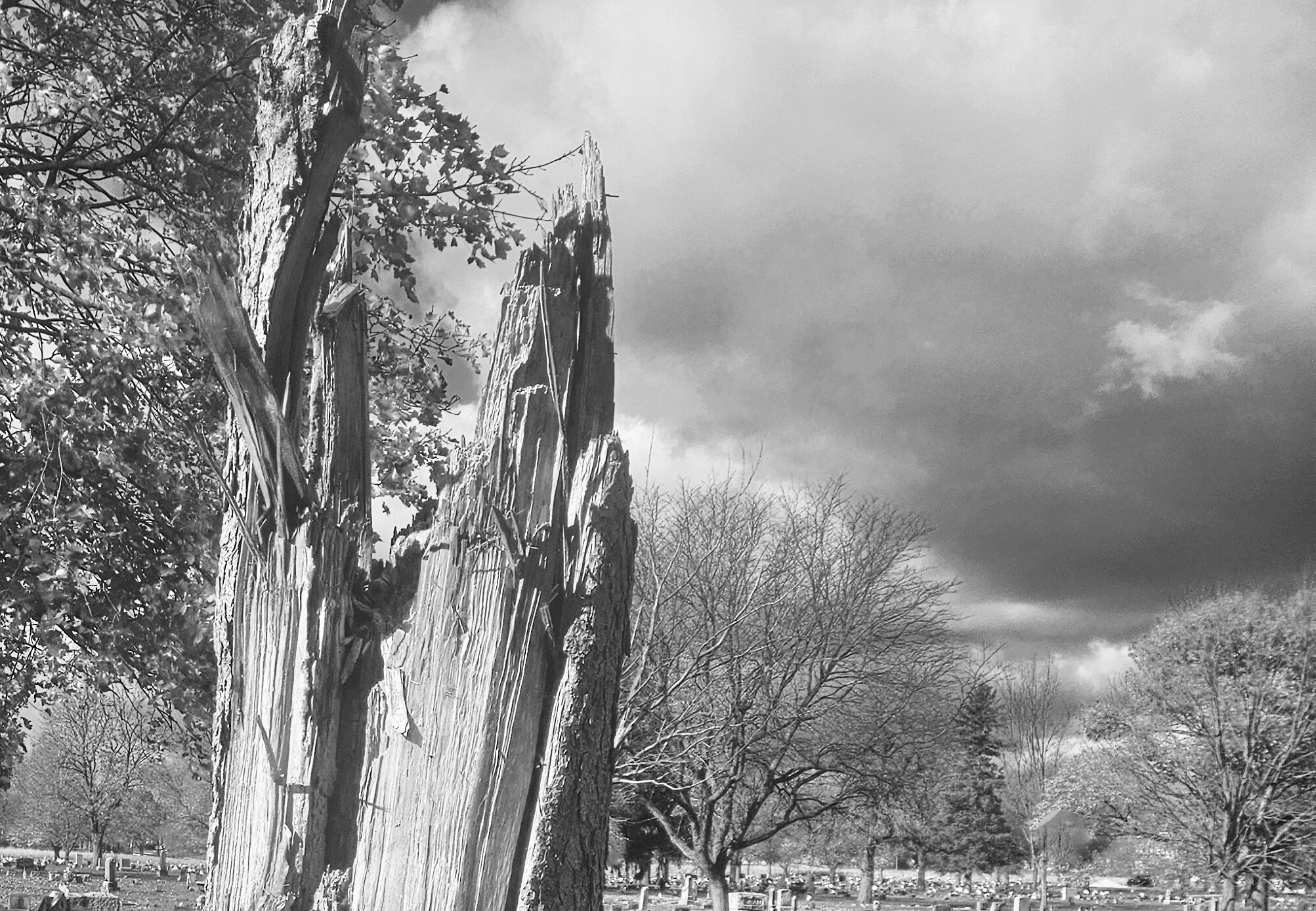I’m at the early stages of understanding grief. Its scope is more significant than I thought it was. Actually, I never thought about grief so much. I’m like a little boy lost in a department store without his mom trying to figure this out. I’m scared and alone, and I feel the need for someone to rescue me. Grief has impacted every part of my life. It’s redefined me. It has touched my beliefs, my free time, my goals, and how I worship. I don’t think I’m the same guy I was before Deb died.

In my confusion, I’m searching for insight. I’m reading more books than ever before, hoping to find answers. So, I’ve been searching for good material on Amazon, the “great keeper and distributor of books.” I searched under the little-used category “grief” and “grief and loss” in the Amazon Universe and found the best-selling books fitting that odd category. What surprised me is that there are so few books from a Christian perspective, and the few that are described as Christian aren’t very Christian. In fact, very few Christian books even made the top 50 list. That’s disappointing to me. It also fills me with a desire to publish this material from an overtly Christian viewpoint.
Now, when I say “Overtly Christian,” (OC), this isn’t one of the categories in Amazon; it’s one I made up myself. I divide this self-made category into the “Kinda Christian” (KC) and the OC. The first category has books that refer to praying and reading the Bible as options for handling grief as if the Bible was one of many things you might or might not use. It’s a preference, like adding extra pepper to your eggs at a restaurant. You tend not to even find the divisive word “Jesus” in these books because they don’t want to offend anyone. And honestly, this view point kinda disgusts me. The OC (and by the way, my material is OC) proudly attributes all healing to Jesus and uses the Bible to help us understand the truth. It makes me want to push back and proclaim the holy name of Jesus, a name to which everyone will bow down and confess is Lord (no matter if you are offended or not). So, to those counting, I say, I love Jesus! I want Jesus in all my writing! And I will write Jesus repeatedly to tell his wonderful name. Jesus, Jesus, Jesus! So there! Take that, Kinda Christians!
One of Many
In my pursuit of answers, I found one of the top-selling books and listened to it on the way to and from work (I have a 45-minute drive one way). I got it from the library, so I didn’t pay anything for it (I’m cheap, and it’s a recurring theme in my writing). I’m afraid to mention the name or author for fear of 1) offending anyone and 2) being sued. So, assume this unnamed book is “one of many” books on grief. I can’t review the other 51,000 grief books anyway.
It didn’t take very long to understand that this writer, a female therapist, wasn’t a Christian. She lost her significant other (SO) in a drowning accident, and she has since been struggling with his death. In this struggle, she found herself struggling with the meaning of life. She did a wonderful job of explaining the bleakness of grief (a subject few are willing to engage).
She leads groups on grief in her area, which I respect. A theme that started well into chapter one and carried throughout the book is how offended she was by the “unhelpful advice” offered by others. The people who tried to encourage her ended up discouraging her, and she didn’t seem to have much patience with their misguided attempts. I understand that. I’ve been offended by comments like, “always knew Deb would be the first to go,” which shouldn’t have been said. But I also understand that the people who offered these comments were trying to love me. Some of my fellow therapists have offered hurtful comments. They took a chance and tried; it’s just that their help wasn’t that helpful.
My concern was that this writer seemed to hold on to these offenses. The first thing I thought when listening to this material was, “Boy, this person is not a Christian,” and the second thought was, “Man, she sure is bitter.” I try to view comforters acting in love like they baked a cake I was allergic to. It’s a wonderful gesture; I don’t eat the thing.
Comforters risked rejection to enter her life and offer their love. They took a chance. When I someone does this to me, I honor their attempts. To me, it’s sweet. And for the record, I’m not getting a dog, buying a motorcycle, traveling to the Bahamas, moving to Florida, or buying a horse. I appreciate their help, but I’m not pursuing these options. Thank you very much. Honestly, I think some of these recommendations are funny.
This writer, however, seemed to keep repeating how hurtful comments were to “move on.” It took me three chapters before it clinked in my little mind: she has no God. Right and wrong are defined by her feelings. What she feels is offensive is wrong. She is her standard. Her bitterness became uncomfortable as the book continued. Her resentment rose to the surface as she went on about how offensive these “thoughtless comments” were.
By the fourth chapter, I realized how selfish she was. Her world revolves around her and her perspective. If others don’t fit into her views, they are discarded, sometimes vilified. There was no love in her thoughts. No kindness or sensitivity for the others who tried to help her. She seemed almost to weaponize their failure to love and surrounded herself with others who agreed with her victimhood, commiserating with her woundedness.
Personally, I don’t think this is healthy.
No Hope
Near the end of her book, she writes about how offended she was by someone who was causally offering her to “have hope” that things would improve. How can she have hope when her future entirely relies on her efforts? She only has herself. There is no God outside of her to protect her or love her. Her hope is reduced to what she can manipulate around her. She had no future, no one she could believe in but herself. No God who would faithfully love her. She was utterly alone.
She is a great example of why Jesus is the solution to grief. First of all, Jesus is real. He’s present in my life, even when I believe the convenient lies that whisper he has forgotten me. He’s good. And he loves me. He’s reliable. I mean, it’s completely reliable. He’s the only thing in my life that is reliable.
Jesus is a person. He knows my pain. He’s in my pain right now, with me. He laughs with me, cries with me, understands my desperation, and draws me to himself so I can be restored. He’s bigger than I am. And he offers me the pivotal truth that “It’s not about me.” He even forgives me when I believe he lies.
He offers me his Word, his Holy Spirit, and his people. I can’t tell you how important these three graces are to me. In the last three months, they have defined me. I could not have made it without them. They have helped me recreate myself and reorder my priorities. When I allow myself to receive his love, I feel most alive.
The people of God have loved me wonderfully. They have breathed life into me. They keep inviting me to their homes for dinner, and I keep saying yes. I love every minute of it. Perhaps more importantly, they pray for me. And I know that because I experience the answers to their prayers.
I think about this poor lady who wrote this “successful” book on grief but has chosen to reject Jesus. She tried to make sense of life independently and had predictable results: bitterness, hopelessness, misery, and no one to trust. She made it very clear (to me) that grieving without Jesus is living under a curse. I ask myself, “Why would she ever try to handle life without Jesus?” but I know the answer before the question is complete; “This is what she chose.” She’s right; she has no hope. What a terrible thing. It’s an avoidable tragedy that can be changed by surrendering to Jesus.
I worked professionally as a social worker in hospice and remember what the Chaplain told me about dying. She said, “People die like they lived all their lives, only more so.” If they were bitter all their life, they would be extra bitter in their death. If they were happy throughout their life, they would be extra happy in death. I think about her quote as I think about this nameless top-selling writer. She handled death like she handled life on her terms. No one was outside herself to redefine herself in losing her SO. She was handling life like she had always handled life on her own.
So, I’m bragging about my God. I’m bragging about the power of God’s Word in my life, which allows me to not be defined by my loss or failures but by his love. He named me (past tense). And, he names me (present tense).
Prayer has become my lifeline, and the Church has been my backbone. Why would anyone choose anything else?
That is why I have joy.
That is how I find rest.
He’s my hope.
